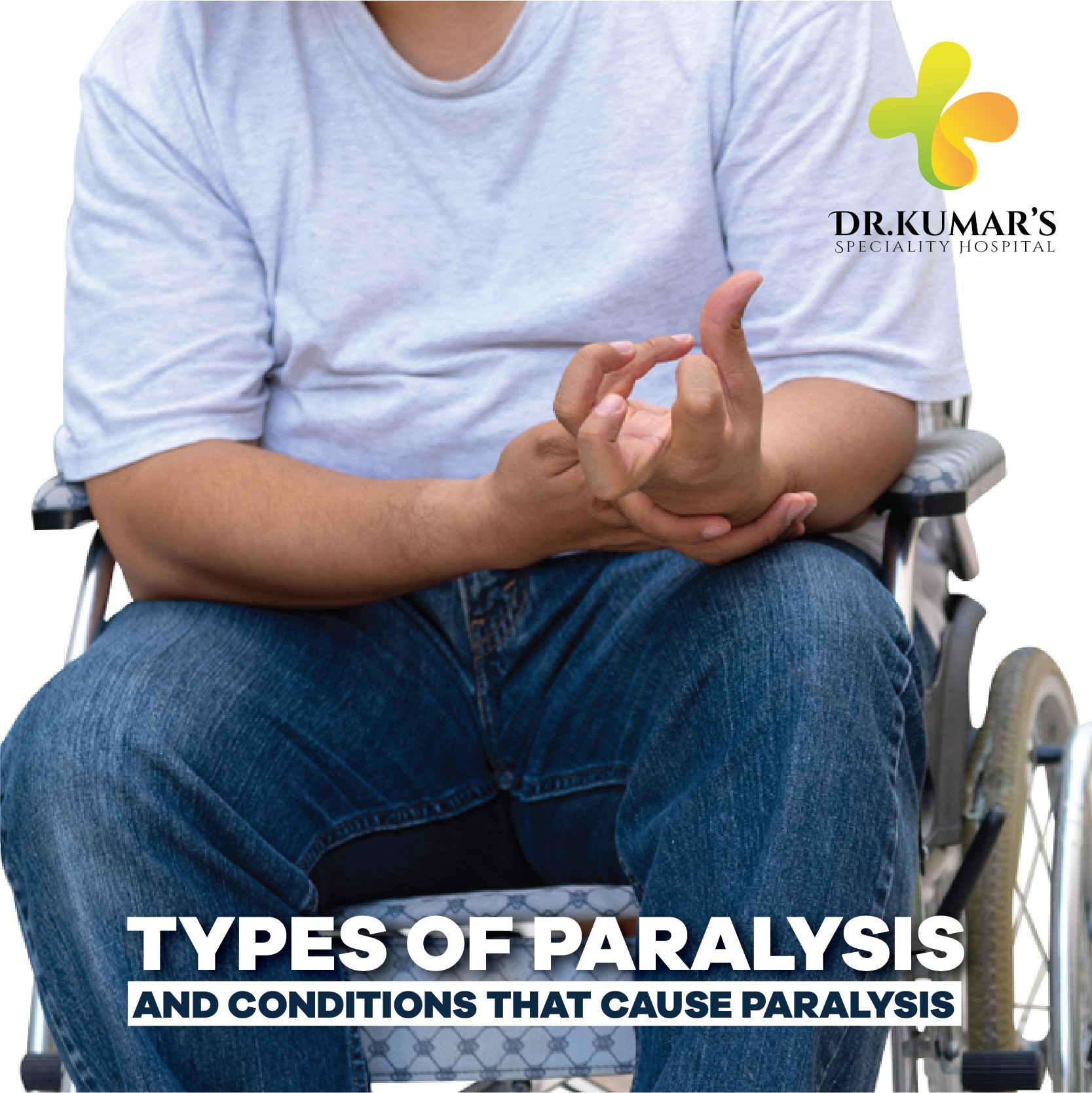What is Paralysis?
Paralysis is when you cannot move certain parts of your body after something goes wrong with their connection to your brain. It comes in many different forms and can be temporary or permanent or even come and go.
Someone who is paralyzed because of a birth defect or sudden injury often cannot feel or move anything at all in their affected body parts. Someone paralyzed by a medical condition, like multiple sclerosis might feel tingling or muscle weakness.
Paralysis can cause problems with blood flow, breathing, how well your organs work, speaking or swallowing, sexual responses, or controlling the urge to go to the bathroom, depending on where you are paralyzed and how bad it is.
The Different Types of Paralysis
Complete Paralysis - Complete paralysis is when you cannot move or control your paralyzed muscles at all. You also may not be able to feel anything in those muscles.
Partial or Incomplete Paralysis - Partial or incomplete paralysis is when you still have some feeling in, and possibly control over, your paralyzed muscles. This is sometimes also called paresis.
Localized Paralysis - Localized paralysis affects just one specific area, like your face, hands, feet, or vocal cords.
Generalized Paralysis - Generalized paralysis is more widespread in your body and is grouped by how much of your body is affected. The type usually depends on where your brain or spinal cord is injured.
Monoplegia - Monoplegia is a kind of generalized paralysis that affects just one limb.
Diplegia – Diplegia affects the same area on both sides, like both arms, both legs, or both sides of your face.
Hemiplegia – Hemiplegia affects just one side of your body and is usually caused by a stroke, which damages one side of your brain.
Quadriplegia or Tetraplegia: This is a paralytic condition when all four limbs are paralyzed, sometimes along with certain organs.
Paraplegia - Paraplegia is paralysis from the waist down.
Locked-in Syndrome - This is the rarest and most severe form of paralysis, where a person loses control of all their muscles except the ones that control their eye movements.
Paralysis can be stiff, or spastic, when your muscles are tight and jerky. Most people with cerebral palsy have spastic paralysis. It can also be floppy, or flaccid, when your muscles sag and eventually shrink.
What are the conditions that cause paralysis?
Paralysis is most often caused by strokes, usually from a blocked artery in your neck or brain. It also can be caused by damage to your brain or spinal cord, like what can happen in a car accident or sports injury. Some kinds of paralysis are caused by certain conditions or diseases linked to specific genes:
- Demyelinating diseases. These happen when the protective coating around your nerve cells, called the myelin sheath, is damaged over time. That makes it harder for your neurons to send signals throughout your body. It weakens your muscles and eventually causes paralysis. There are several demyelinating diseases, but the most common is multiple sclerosis.
- Motor neuron diseases (MNDs). Motor neurons are the nerve cells that control the muscles you use to walk, breathe, speak, and move your limbs. There are two types: upper motor neurons, which send signals from your brain down to your spinal cord; and lower motor neurons, which get those signals and send them to your muscles. MNDs are diseases that damage these cells over time.
- Upper motor neuron diseases, like primary lateral sclerosis (PLS), affect just the upper motor neurons. This makes muscles stiff and spastic.
- Lower motor neuron diseases, like spinal muscular atrophy (SMA), affect only the lower motor neurons. This makes muscles floppy or flaccid, which makes them weak and sometimes causes them to twitch uncontrollably.
- The most common MND is amyotrophic lateral sclerosis (ALS or Lou Gehrig’s disease), which affects both upper and lower neurons.
- Periodic paralysis. This is caused by changes in certain genes. It involves random attacks of paralysis, often triggered by something in the person’s diet.
Besides the paralysis caused by some specific genes, there are other paralyses caused by conditions like:
- Sleep paralysis - Sleep paralysis happens while you are waking up or falling asleep. Sometimes people who have sleep paralysis will also see things that are not there, this is called visual hallucinations.
- Bell’s palsy – Bell’s palsy makes half of your face appear to droop. Doctors think it’s caused by certain viruses.
- Todd’s paralysis – Todd’s paralysis often happens for a brief period after a person with epilepsy has had a seizure, usually just on one side of their body.
- Tick paralysis and Lyme disease - Some ticks have neurotoxins in their spit glands that can cause paralysis, starting in your feet and legs and moving upward. Once the tick is removed, the paralysis goes away, but if it is not treated, it can spread to your face and be very serious. Ticks sometimes also carry Lyme disease, a bacterial infection that can cause several different symptoms, including facial paralysis and numbness in your arms and legs.
- Muscular dystrophy (MD). Your muscles need certain proteins to help them stay healthy and protect them from damage. MD is when changes in genes in these proteins make your muscles weak and cause them to break down over time.
- HTLV-1 associated myelopathy. Also called tropical spastic paraparesis (TSP), this type of spastic paralysis comes on gradually after an infection with human T-cell leukemia virus type 1. It causes symptoms that are similar to multiple sclerosis, but it happens in less than 3% of people infected with the virus.

